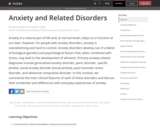
Text and links to all ancillary materials for Module 39
- Subject:
- Psychology
- Social and Behavioral Sciences
- Material Type:
- Module
- Reading
- Teaching/Learning Strategy
- Author:
- David H
- Kristen K
- Date Added:
- 05/31/2021

Text and links to all ancillary materials for Module 39

Biology is designed for multi-semester biology courses for science majors. It is grounded on an evolutionary basis and includes exciting features that highlight careers in the biological sciences and everyday applications of the concepts at hand. To meet the needs of today’s instructors and students, some content has been strategically condensed while maintaining the overall scope and coverage of traditional texts for this course. Instructors can customize the book, adapting it to the approach that works best in their classroom. Biology also includes an innovative art program that incorporates critical thinking and clicker questions to help students understand—and apply—key concepts.
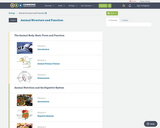

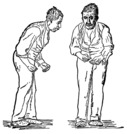
By the end of this section, you will be able to:Describe the symptoms, potential causes, and treatment of several examples of nervous system disorders
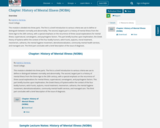
By Ingrid G. Farreras, Hood College. This module is divided into three parts. The first is a brief introduction to various criteria we use to define or distinguish between normality and abnormality. The second, largest part is a history of mental illness from the Stone Age to the 20th century, with a special emphasis on the recurrence of three causal explanations for mental illness; supernatural, somatogenic, and psychogenic factors. This part briefly touches upon trephination, the Greek theory of hysteria within the context of the four bodily humors, witch hunts, asylums, moral treatment, mesmerism, catharsis, the mental hygiene movement, deinstitutionalization, community mental health services, and managed care. The third part concludes with a brief description of the issue of diagnosis.

By Hannah Boettcher, Stefan G. Hofmann, and Q. Jade Wu, Boston University. In the past century, a number of psychotherapeutic orientations have gained popularity for treating mental illnesses. This module outlines some of the best-known therapeutic approaches and explains the history, techniques, advantages, and disadvantages associated with each. The most effective modern approach is cognitive behavioral therapy (CBT). We also discuss psychoanalytic therapy, person-centered therapy, and mindfulness-based approaches. Drug therapy and emerging new treatment strategies will also be briefly explored.
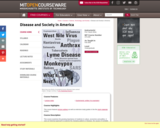
This course examines the growing importance of medicine in culture, economics and politics. It uses an historical approach to examine the changing patterns of disease, the causes of morbidity and mortality, the evolution of medical theory and practice, the development of hospitals and the medical profession, the rise of the biomedical research industry, and the ethics of health care in America.
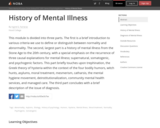
Text and links to all ancillary materials for Module 38
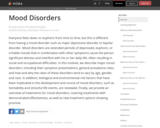
Text and links to all ancillary materials for Module 41
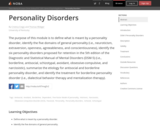
Text and links to all ancillary materials for Module 43
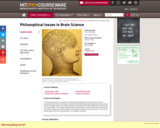
" This course provides an introduction to important philosophical questions about the mind, specifically those that are intimately connected with contemporary psychology and neuroscience. Are our concepts innate, or are they acquired by experience? (And what does it even mean to call a concept 'innate'?) Are 'mental images' pictures in the head? Is color in the mind or in the world? Is the mind nothing more than the brain? Can there be a science of consciousness? The course includes guest lectures by Philosophers and Cognitive Scientists."
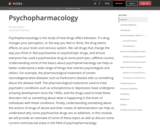
Text and links to all ancillary materials for Module 45
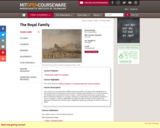
An exploration of the changing role of the monarchy in British politics and culture, beginning with the accession of the House of Hanover (later Windsor) in 1714. The dynasty has encountered a series of crises, in which the personal and the political have been inextricably combined: for example, George III's mental illness; the scandalous behavior of his son, George IV; Victoria's withdrawal from public life after the death of Prince Albert; the abdication of Edward VIII; and the public antagonism sparked by sympathy for Diana, Princess of Wales. In addition to readings, materials include portraits, news footage, and films.
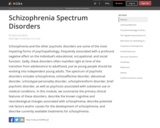
Text and links to all ancillary materials for Module 42
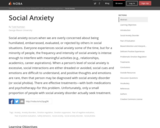
Text and links to all ancillary materials for Module 40
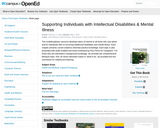
This multidisciplinary resource develops topics of interest to all those who care about and for individuals with co-occurring intellectual disabilities and mental illness. Each chapter presents current evidence informed practice knowledge. Each topic is also presented with audio enabled text boxes emphasizing 'Key Points for Caregivers.' For those who are interested in background knowledge, we provided the comprehensive literature base. And, for those interested mainly in 'what to do,' we provided text box summaries for reading and listening.
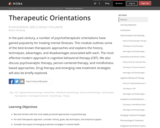
Text and links to all ancillary materials for Module 44